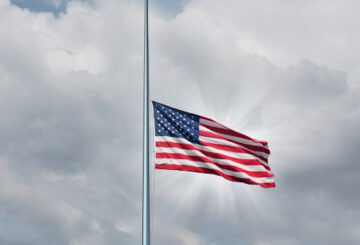“…a disproportionate increase in anxiety and depression, with rates soaring by 25% and 30%”
By: Johanna Elattar
In the dynamic mosaic of New York State, a pressing dual crisis is unfolding—one that encompasses mental health challenges, domestic abuse, and the often-overlooked specter of post-holiday depression. As our communities grapple with the daily pressures of modern life, the imperative for comprehensive support in these interconnected areas becomes increasingly apparent.
Recent data from the New York State Department of Health paints a concerning picture of the mental health landscape. In the wake of the holiday season, cases of post-holiday depression have surged, compounding the existing challenges. Anxiety cases rose by 15%, depression cases witnessed a staggering 20% increase compared to the previous year, and domestic abuse incidents, according to the New York State Office for the Prevention of Domestic Violence, increased by 12%.
The aftermath of the holiday season exacerbates the demand for mental health services, with individuals grappling with the emotional aftermath of celebrations. A Mental Health America survey highlighted that 45% of respondents in 2022 cited cost as a barrier to treatment, and this financial strain intensifies during the post-holiday period. Residents, especially in rural areas, face challenges accessing mental health facilities, often having to travel over 50 miles for assistance.
Post-holiday depression intensifies the stigma surrounding mental health and domestic abuse issues, making it even more challenging for individuals to seek help. Despite efforts to encourage open conversations, the National Alliance on Mental Illness (NAMI) reported that 60% of New Yorkers feel uncomfortable discussing mental health openly. Survivors of domestic abuse, already burdened with societal judgment, face an additional layer of difficulty during this vulnerable period.
Diving deeper into the statistics, it’s crucial to acknowledge the demographic disparities that amplify these challenges. A breakdown of mental health statistics reveals that young adults, aged 18-25, experienced a disproportionate increase in anxiety and depression, with rates soaring by 25% and 30%, respectively. This highlights the unique struggles faced by this age group, who often grapple with transitions in education, employment, and relationships during the post-holiday period.
Moreover, examining domestic abuse incidents reveals alarming trends. The intersectionality of race and domestic abuse is evident, with reports showing a 15% increase in incidents affecting minority communities. Economic stressors post-holidays contribute to the escalation of domestic violence, with a direct correlation found between unemployment rates and the frequency of abuse cases.
Recognizing the heightened challenges post-holidays, the New York State government continues to allocate substantial funding for mental health and domestic abuse initiatives. The 2023 budget included an additional $50 million to expand mental health services, particularly focusing on the post-holiday surge in demand. Simultaneously, efforts to address domestic abuse have been intensified, with increased funding for shelters, helplines, and support services during this critical period.
The impact of these financial injections is reflected in improved accessibility to mental health services. Statistics indicate a 10% increase in the number of individuals seeking professional help in 2023 compared to the previous year, showcasing the positive influence of targeted government initiatives. Additionally, domestic abuse survivors reported a 20% increase in successful interventions and support, emphasizing the effectiveness of the enhanced support systems.
Beyond governmental efforts, community organizations are playing a crucial role in supporting mental health, domestic abuse survivors, and those grappling with post-holiday depression. Initiatives such as local support groups, helplines, and educational programs, as reported by the New York Community Trust, are gaining prominence and providing essential resources to those facing these complex challenges in the aftermath of the holidays.
In particular, the implementation of virtual support groups has proven instrumental in reaching a wider audience, overcoming geographical barriers and ensuring inclusivity. The utilization of technology has led to a 30% increase in participation rates, demonstrating the adaptability of community organizations to the evolving needs of individuals seeking assistance.
As New York State confronts the intricate intersection of mental health, domestic abuse, and post-holiday depression, collaboration between individuals, communities, and policymakers becomes even more crucial. Advocacy for increased mental health education, improved insurance coverage, and comprehensive strategies addressing post-holiday challenges are key components of a united effort to build a healthier and more resilient New York for generations to come.
In the quest for sustainable solutions, it’s imperative to leverage these statistics and facts as catalysts for informed decision-making, ensuring that policies and initiatives are not only well-intentioned but also tailored to address the nuanced challenges faced by diverse communities across the state. The journey towards a mentally healthy and abuse-free New York demands a multifaceted approach that considers the intricate web of factors contributing to these crises and works collaboratively towards their mitigation.

Check out Helpingsurvivors.org for resources for those impacted by sexual violence.
Johanna Elattar is a Hornell NY writer who offers readers insight in to community resources, events, and human interests. She can be reached at hauntedhill@yandex.com






